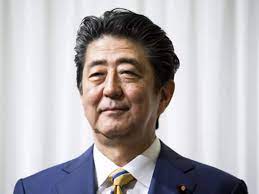Singapore, Aug 21: Shinzo Abe always gave “top priority” to strengthening Japan’s strategic ties with India and the late prime minister took landmark initiatives like signing the bilateral civil nuclear deal, a key trade agreement, and convinced New Delhi to join the Quad grouping, according to a leading Japanese expert on India.
Abe, 67, died on July 8 after being shot during an election campaign speech in Nara, Japan.
Abe convinced a reluctant and non-aligned India to join the Quad, a four-nation grouping, Masanori Kondo, a senior associate professor at the International Christian University in Tokyo and a regular follower of developments in India, told PTI here.
The Quad is a grouping of the US, India, Japan and Australia. It was formed amidst China’s growing influence and aggressive behaviour in the strategic Indo-Pacific region.
“The Quad is working well for all the four countries and covers beyond the ‘guarding of the oceans’ to environment and climate issues,” he said.
Kondo recalled Abe’s first visit to India in 2007 and his address to the Indian Parliament “Confluence of the Two Seas,” a concept of Free and Open Indo-Pacific.
“Strengthening the relationship with India is very important for Japan’s national interest,” Abe wrote in “Towards a Beautiful Japan”, published in 2006 before he first won the Liberal Democratic Party presidential election.
Abe was Japan’s longest-serving prime minister, having held office from 2006 to 2007, then again from 2012 to 2020.
Abe’s foresight can be seen as it was long before the rise of China in the international community began in earnest, and he always gave India “top priority”, said Kondo, who has served as a member of Japanese government committees on India, including the Japan-India Joint Study Group as well as the 21st Century India-Japan Eminent Persons’ Group.
Abe’s contribution to strengthening Japan-India relations also included the Japan-India civilian nuclear power deal, which made the bilateral relationship even more strategic.
“It would have been impossible for Japan to conclude such an agreement with India without Abe’s strong leadership,” said Kondo on the India-Japan Agreement for Cooperation in the Peaceful Uses of Nuclear Energy, which came into force in 2017.
Abe responded to former Prime Minister Manmohan Singh’s enthusiasm in fast-tracking the nuclear agreement in 2014.
Abe maintained an excellent working relationship with Prime Minister Narendra Modi, from the time he was the Gujarat Chief Minister, and sought international investments for the state, Kondo said.
Abe had also cleared hurdles for the India-Japan Comprehensive Economic Partnership Agreement (IJCEPA), which was signed on February 16, 2011, and entered into force on August 1, 2011, he noted.
The IJCEPA is one of the most comprehensive of all the agreements India has concluded with other countries to date, according to Kondo.
Abe had pushed for large-scale ODA (Official Development Assistance) projects such as the Delhi-Mumbai freight corridor and the construction of metros in major cities.
“Notably, the ongoing Mumbai-Ahmedabad bullet train project would never have been possible without the pressure of top-down leaderships of the two countries,” he said.
The strengthening of Japan-India relations will continue, but the loss caused by the sudden death of Abe is immeasurable, he added.
“The late Abe is completely special to the Indians, and it was only natural that he had received Padma Vibhushan, following former Prime Minister Yoshiro Mori,” said Kondo.
The continuation of the strong bilateral Japan-India relations would be to get more and more Indian projects under the ODA, Kondo said.
“Today, the Japanese are not only among the big investors in India and leading in several infrastructure projects, they are also closely monitoring more business opportunities,” he added. (PTI)
Home Internation-left Late PM Shinzo Abe contributed to solidify Japan-India relationships with landmark projects:...


